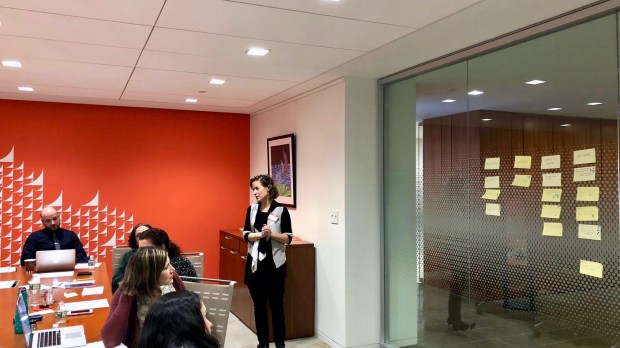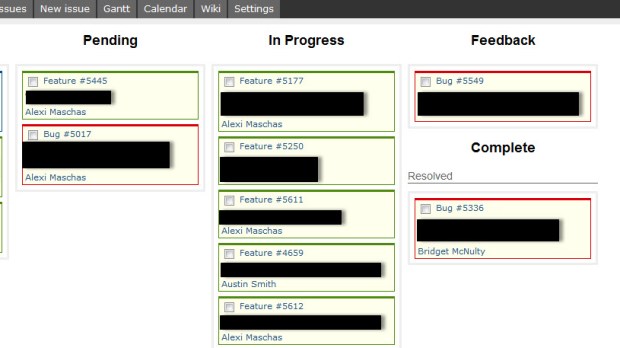If your team has found themselves locked out of the scrum room and working in a new or unfamiliar way, resolving the urgent and important impediments facing your team needs to be their primary focus.
Agile and Scrum
At Alley, we use Scrum to coordinate teams, projects, and the company. We work in one-week sprints so we have frequent demos and a tight feedback loop. We’re Agile partners with our clients, some of whom also use Scrum, and also evangelists and contributors to the broader Scrum community. We maintain Helperbot, a free Scrum estimation tool for teams that use Slack, and publish the podcast Two Scrums Up.
-
-
Because of concern over a widespread outbreak of Coronavirus Disease 2019 (COVID-19), many companies, including Apple, Facebook, Amazon, and Google, have asked their team members to work from home. We at Alley don’t want to grow our business on fear, uncertainty, or doubt, but we do want to help other Scrum practitioners through a temporary transition to working from home.
-
As a scrum master and coach, I see the phrase “doing scrum wrong” thrown around a lot. But Scrum rules are made to be broken.
-
“Be careful with the things you only get one of.” While this applies to a lot of things in life, it is especially true when it comes to how I try to execute my work here at Alley. As a Scrum Master and Agile Process Leader, my role is to serve a Scrum Team by…
-
Just like how hours work globally because we all take our cues from the World Clock, teams need to base their decisions using the same benchmarks to unlock the true value of story points and team velocity. This can be accomplished by using reference stories.
-
There’s a saying that people invariably attribute to wherever they live: if you don’t like the weather in [PLACE] wait five minutes. That said, more often than not, the opposite is true. Whether for a sprint, or for the real world, a great way to predict tomorrow’s weather is to look at yesterday’s. You won’t always be right (and likely never exactly right), but you will be close enough to not die from exposure to the elements – or misread your velocity.
-
First impressions matter. By carefully planning a discovery workshop for your project, you can ensure that you’ll hit the ground running and that everyone is equally invested in, approving of, and informed about the project’s goals and next steps. Over the years, we’ve had a lot of experience organizing discovery meetings and workshops.
-
Here at Alley, we’ve recently completed a six-month project to migrate from Redmine to JIRA for issue tracking and project management. Migrating hundreds of users, tens of thousands of issues, and hundreds of thousands of comments is a daunting task, but we managed it without disrupting our projects, clients, or day-to-day work.
-
How annoying is that title? If you answered “pretty annoying” or “super annoying,” you are correct. Using more words than necessary or using a ten-dollar word when a five-cent word would suffice is not a new problem. This scourge on humanity predates the written word. When coupled with corporate buzzwords, language loses meaning and one’s…
-
At Alley, we use Kanban to manage software development. (For more on exactly what Kanban is and how we use it at Alley, check out this post.) However, we quickly realized that Kanban at Alley was going to be fairly complicated to implement so we built a plugin for Redmine, our project management system. This plugin,…








